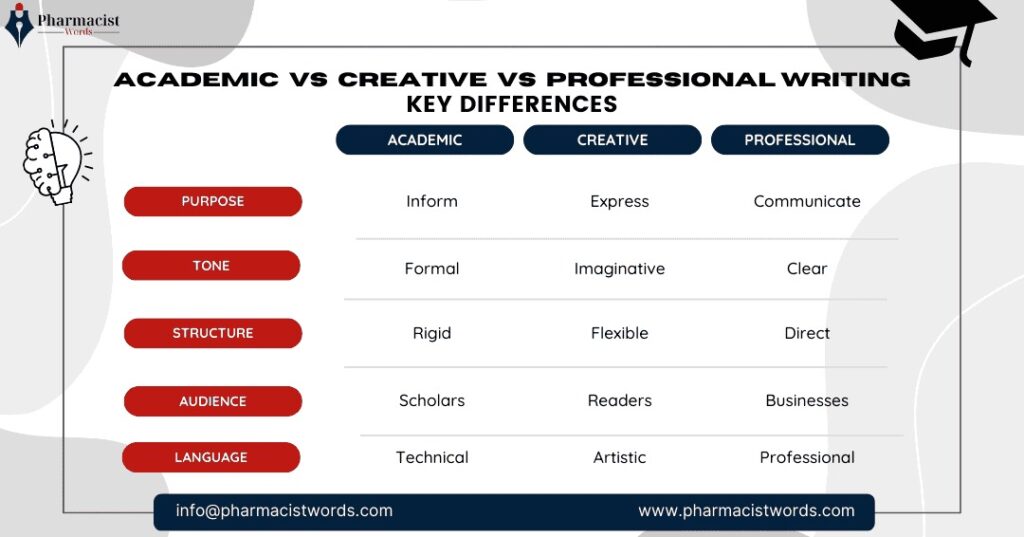Understanding Academic Writing
I remember my first experience with academic writing—it was overwhelming. The rules, the structure, and the strict formatting made it feel like an entirely different language. But as I delved deeper into the process, I realized its significance. Academic writing is a formal and structured form of communication used in universities, research institutions, and scholarly publications. It ensures clarity, credibility, and precision.
Academic writing includes various forms such as research papers, essays, theses, and dissertations. The definition of academic writing revolves around the idea of presenting information logically, backed by evidence. It follows strict guidelines to maintain consistency and objectivity.
Table of Contents
Why Does Academic Writing Require Strict Formatting?
If you’ve ever written a research paper, you know the frustration of formatting citations, margins, and headings. But why is it so important? Strict formatting in academic writing ensures uniformity, making research easier to read and verify. Whether it’s APA, MLA, or Chicago style, formatting provides structure to academic texts.
According to GCU Library Academic Writing Guide, formatting maintains the credibility of scholarly work and avoids plagiarism. When readers look at an academic text, they expect a certain structure, making it easier to locate information.
Types and Characteristics of Academic Writing
There are different types of academic writing, each serving a distinct purpose. These include:
- Descriptive Writing – Summarizing information.
- Analytical Writing – Breaking down complex ideas.
- Persuasive Writing – Arguing a point based on evidence.
- Critical Writing – Evaluating and interpreting research.
The characteristics of academic writing include clarity, formality, and a logical structure. It avoids personal opinions unless required, and every claim must be supported by credible sources.
The Role of Formatting and Structure in Academic Texts
Academic texts follow a structured approach. Rules in academic writing dictate that each paper must include an introduction, body, and conclusion. Proper paragraphing, citations, and references ensure a coherent flow of ideas.
Using first-person in academic writing is often discouraged unless specified by the instructor. Moreover, contractions in academic writing should be avoided for a more formal tone.
The Importance of Hedging in Academic Writing
One crucial element of academic writing is hedging. This technique involves using cautious language to avoid absolute statements. Instead of saying, “This study proves,” academic writers say, “This study suggests.” This maintains objectivity and acknowledges the limitations of research.
The Purpose of Writing in Academic Form
Academic vs. Creative vs. Professional Writing: Key Differences Explained



How ChatGPT Helps in Academic Writing
- 1. Generating structured outlines – Helping organize thoughts logically.
- 2. Providing academic-style paraphrasing – Ensuring originality while maintaining meaning.
- 3. Enhancing vocabulary and coherence – Making writing more polished.
Students often use ChatGPT prompts for academic writing to refine their research and get clarity on complex concepts.
Resources for Learning and Excelling in Academic Writing
If you’re looking to improve your academic writing, various resources can help:
- Academic writing books like “The Moves That Matter in Academic Writing.”
- Online academic writing courses for structured learning.
- University of Cincinnati Academic Writing Center for student support.
Books such as Swales’ Academic Writing for Graduate Students and Longman Academic Writing Series 3 & 4 are highly recommended for mastering academic writing.
Opportunities in Academic Writing Work
For those looking for a career in academic writing, academic writing vacancies are available across universities, publishing houses, and freelance platforms. Engaging in academic book writing or contributing to journals can open doors to new opportunities.
Participating in competitions like the Harvard International Review Academic Writing Contest can also enhance credibility and recognition in the field.
Final Thoughts: The Value of Research Writing
Academic writing may seem challenging at first, but with practice and the right resources, it becomes an essential skill for students and researchers. Whether you’re working on a thesis, a research paper, or a journal article, understanding the fundamentals of academic writing will help you communicate your ideas effectively. The strict rules and structured approach ensure credibility, precision, and clarity, making academic writing an indispensable part of education and research.









